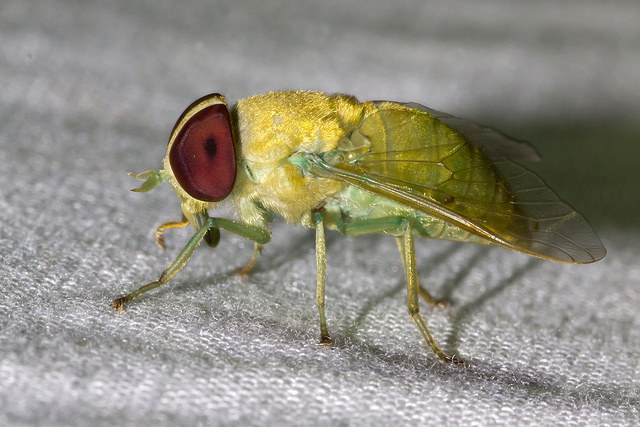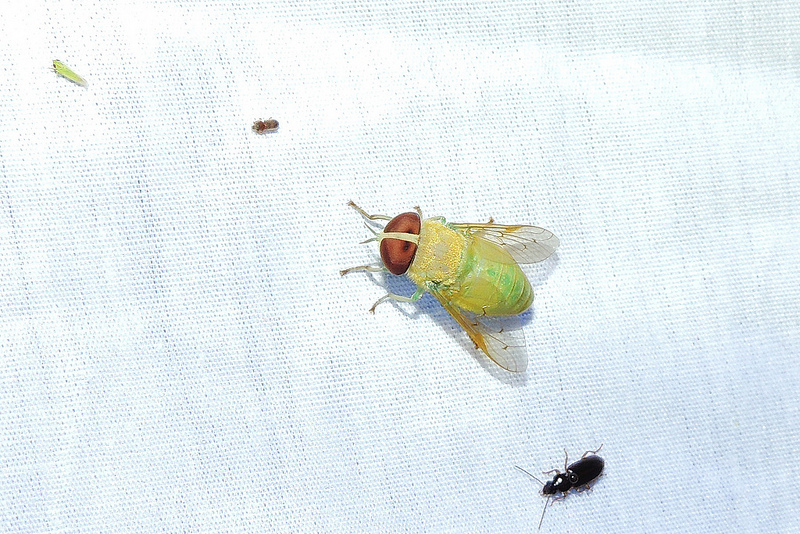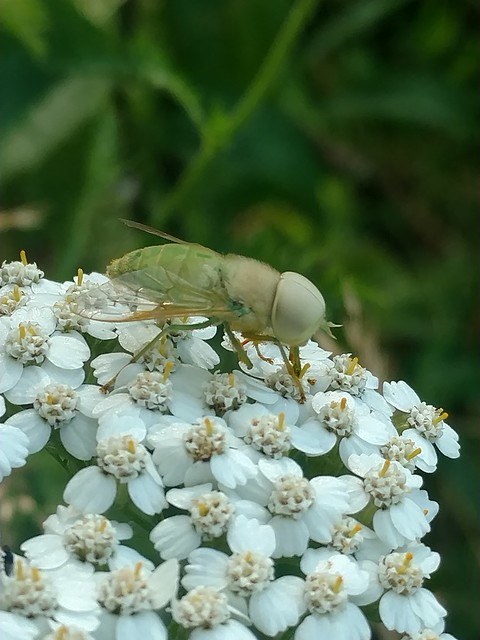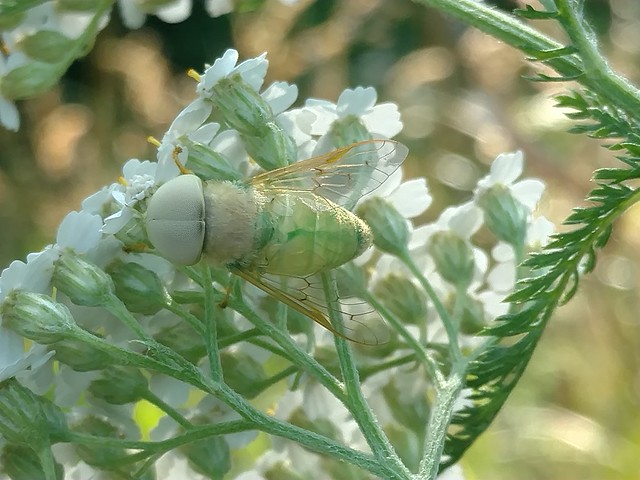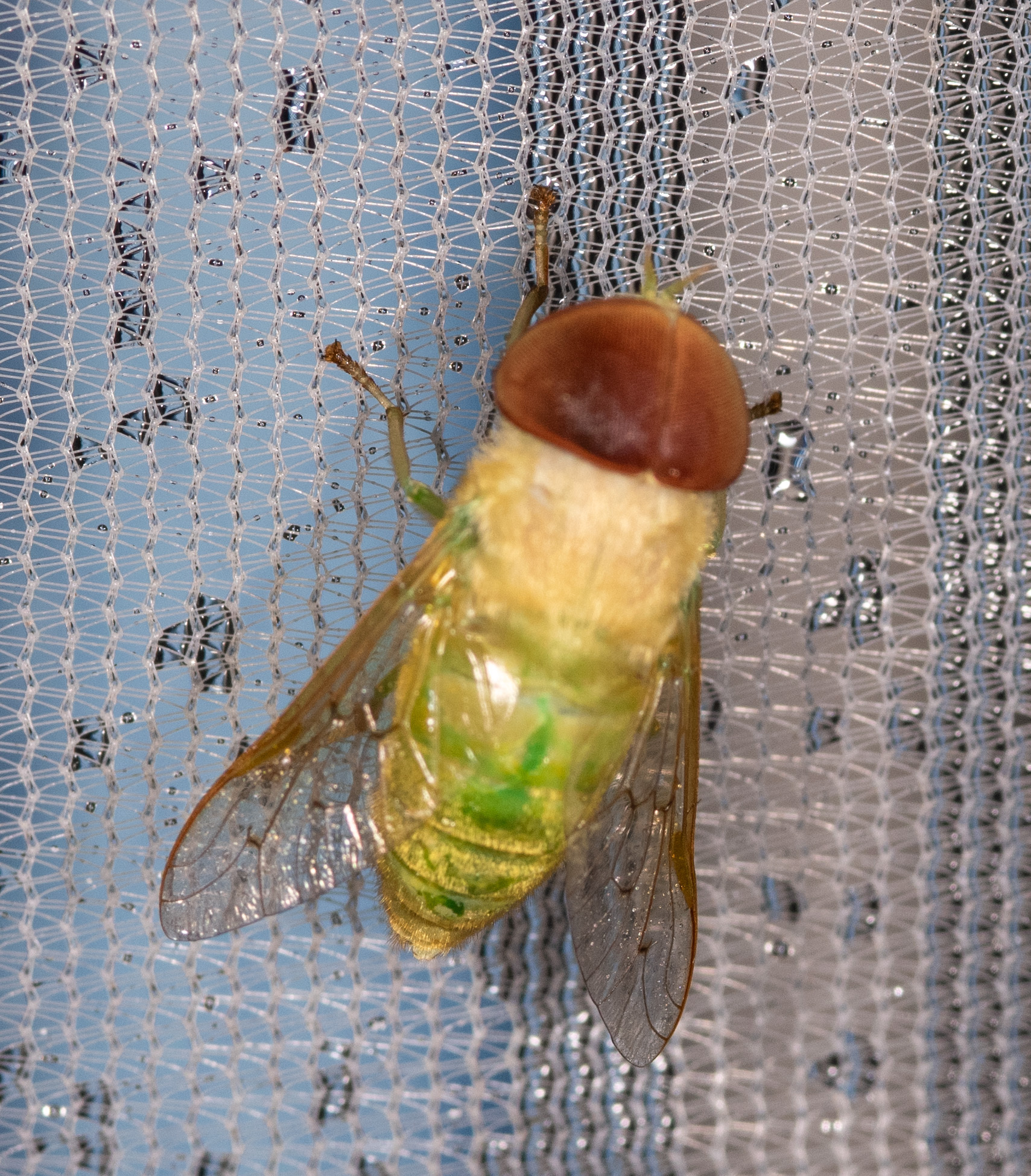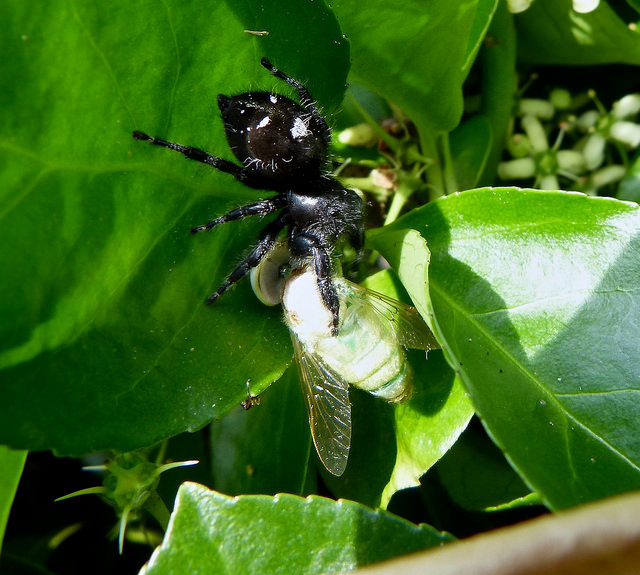Map Snapshot








11 Records
Seasonality Snapshot
Use of media featured on Maryland Biodiversity Project is only permitted with express permission of the photographer.
A female Green Horse Fly in Wicomico Co., Maryland (8/4/2014).
View Record Details
Media by
Mike Burchett.
A Green Horsefly in Dorchester Co., Maryland (7/30/2006).
Media by
Jim Brighton.
A female Green Horse Fly on the Worcester/Wicomico County line, Maryland (7/21/2013). Only member of its genus.
Media by
Mike Burchett.
A male Green Horse Fly in Caroline Co., Maryland (6/22/2019).
View Record Details
Media by
Wayne Longbottom.
A male Green Horse Fly in Caroline Co., Maryland (6/22/2019).
View Record Details
Media by
Wayne Longbottom.
A male Green Horse Fly in Washington Co., Maryland (6/14/2024). (c) Mark Etheridge, some rights reserved (CC BY-NC).
View Record Details
Media by
Mark Etheridge.
Green Horse Fly being devoured by a jumping spider in Talbot Co., Maryland (7/16/2014).
View Record Details
Media by
Jim Brighton.
A Green Horse Fly in Talbot Co., Maryland (8/1/2016).
View Record Details
Media by
Kim Bryan.
A Green Horse Fly in Caroline Co., Maryland (7/28/2018). Verified by Keith Bayless/BugGuide.
View Record Details
Media by
Jim Moore.
Source: Wikipedia
| Chlorotabanus crepuscularis | |
|---|---|

| |
| Chlorotabanus crepuscularis (Green horse fly) | |
| Scientific classification | |
| Domain: | Eukaryota |
| Kingdom: | Animalia |
| Phylum: | Arthropoda |
| Class: | Insecta |
| Order: | Diptera |
| Family: | Tabanidae |
| Subfamily: | Tabaninae |
| Tribe: | Diachlorini |
| Genus: | Chlorotabanus |
| Species: | C. crepuscularis
|
| Binomial name | |
| Chlorotabanus crepuscularis | |
| Synonyms | |
| |
Chlorotabanus crepuscularis is a species of horse flies in the family Tabanidae.[2][3] This species is the only green tabanid in North America. It can be found from Texas to Delaware. In Florida, this sanguinivorous (blood-feeding) fly is seen as an adult from March through September, but is most active from May to mid-July.
The female has the ability to sense carbon dioxide, which helps it feed on mammals, especially during the night when it is most active. The larvae are also predaceous and live in the soil adjacent to water and on floating vegetation but can also live in forest sand. The insect's blood is blue. The fly's eyes are brown, but glow yellow under 385 nm UV light.[citation needed]
References
[edit]- ^ Bequaert, J.C. (1926). "Medical report of the Hamilton Rice Seventh Expedition to the Amazon, in conjunction with the Department of Tropical Medicine of Harvard University, 1924-1925. Part II. Medical and economic entomology". Contributions from the Harvard Institute for Tropical Biology and Medicine. 4: 155–257, pls. 61–67.
- ^ Moucha, J. (1976). "Horse-flies (Diptera: Tabanidae) of the World. Synoptic Catalogue" (PDF). Acta Entomologica Musei Nationalis Pragae Supplements. 7: 1–320. Retrieved 11 September 2022.
- ^ Burger, J. F. (1995). "Catalog of Tabanidae (Diptera) in North America north of Mexico". International Contributions on Entomology. 1 (1). Associated Publishers: 1–100.
